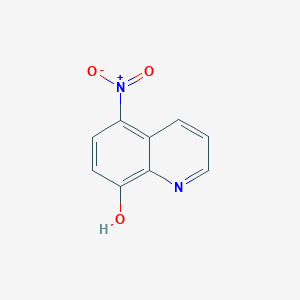2019 FDA new drug approval report: 48 new drugs have been approved as the most orphan drugs
-
Last Update: 2020-01-08
-
Source: Internet
-
Author: User
Search more information of high quality chemicals, good prices and reliable suppliers, visit
www.echemi.com
Original: Du Yan Recently, FDA released the new drug review report of 2019, and its subordinate agency, CDER, approved 48 new drugs in 2019, ranking the second in history after 59 in 2018 in recent 20 years Among them, there are several remarkable figures: 21 new drugs (44%) are orphan drugs for treating rare diseases, 20 new drugs (42%) are first in class; 29 innovative drugs (60%) have at least one of the four FDA qualifications, 35% of which have obtained fast track qualification, 27% have obtained breakthrough treatment qualification, 58% have obtained priority review qualification, 19% have obtained accelerated approval Next, let's take a look at the details of this report In 2019, 21 orphan drugs (44%) were approved to treat rare diseases, which is the disease type with the largest number of new drugs approved after 2018 Dr Janet Woodcock, director of CDER, also said in the introduction: "patients with rare diseases often have little or no drugs to treat their condition For them, approval of so-called 'orphan' drugs may mean new hope for improving the quality of life, and in some cases, hope for survival." FDA approved orphan drugs in 2019 Among them, it is worth noting that the approval of two drugs for rare diseases has achieved a leap from 0 to 1 in the field of medicine for this disease: Scenesses (afamelanotide): on October 8, 2019, FDA approved the listing of afamelanotide developed by clinuvel pharmaceutical for the treatment of erythropoietic protoporphyria (EPP) patients Erythropoietic protoporphyria is a rare disease sensitive to sunlight It is estimated that there are about 5000-10000 EPP patients in the world Scenesses can protect patients from UV radiation by stimulating melanin production Turalio (pexidartinib): on August 2, 2019, the FDA approved pexidartinib developed by the first three companies to be launched on the market for the treatment of adult patients with symptomatic tendon sheath giant cell tumor (TGCT) These patients' diseases cause severe functional limitations and cannot be improved by surgery It is worth mentioning that pexidartinib is the first drug approved to treat TGCT and the first csf1r inhibitor approved by FDA Compared with 2018, although the number of new drugs approved by the FDA in 2019 decreased by 11, it was also far higher than the average number in 2009-2017 In particular, among the new drugs approved in 2019, the first in class (FIC) accounted for 42%, a total of 20 These new drugs have different mechanisms of action from the existing therapies, and have a greater positive impact on the health of patients around the world 20 first in class new drugs approved in 2019 The report also explains in detail the significance of the approval of two new drugs Balversa (erdafitinib): on April 12, FDA approved the listing of erdafitinib in Janssen for the treatment of locally advanced or metastatic bladder cancer with FGFR3 or FGFR2 mutations in the progression of disease after chemotherapy with platinum therapy The drug is an oral pan FGFR inhibitor and the first FDA approved targeted therapy for metastatic bladder cancer Zulress (brexanolone): on March 19, the FDA approved the new drug brexanolone, sage therapeutics, for the treatment of postpartum depression The drug can significantly improve the Depression Scale score of patients 60 hours after injection, and is the first new drug approved by FDA for postpartum depression In addition to "special care" for patients with rare diseases, FDA has also approved new drugs in gene therapy, RNAi therapy and precision therapy types of "unlimited cancer species" this year The "first approval" of innovative therapy not only represents the breakthrough of innovative treatment mode from research and development, supervision to market, but also means that these treatment modes will completely change the treatment mode of patients For example: Adakveo (crizanlizumab TMCA): on November 15, FDA approved the launch of adakveo in Novartis to reduce the frequency of vascular occlusion crisis (VOC) in patients over 16 years old with sickle cell anemia This is the first VOC targeted therapy approved by FDA Beovu (brolucizumab – dbll): on October 8, FDA approved the launch of beovu from Novartis for the treatment of wet age-related macular degeneration (wet AMD, namd) It is worth noting that the drug is the first and only anti VEGF drug approved by FDA, which can reduce the retinal fluid to a greater extent compared with the regenerative eye product eylea (Aflibercept), and is expected to reduce the number of patients' administration to 3 months Zebotinib: on November 14, the FDA approved zebotinib, a Btk inhibitor from Baiji, for the treatment of adult mantle cell lymphoma (MCL) patients who have received at least one treatment before The drug has become the first anti-cancer new drug that has been independently developed by Chinese enterprises and approved by FDA to be listed so far, achieving the "zero breakthrough" of China's original anti-cancer new drug Piqray (alpelisib): on May 24, FDA approved Novartis alpelisib to be put on the market for the treatment of postmenopausal female breast cancer patients with PI3K α mutation of HR + and HER2 - who have received endocrine therapy for disease progression This is the first PI3K α inhibitor approved for breast cancer treatment, which was approved nearly three months earlier than the scheduled PDUFA day Reyvow (lasmiditan): on October 12, FDA approved the launch of Lidai's 5-hydroxytryptamine 1F (5-HT1F) receptor agonist lasmiditan for acute treatment of adult migraine patients with or without aura (sensory phenomenon or visual impairment) This is the first 5-HT1F receptor agonist approved by FDA, and also the first oral new drug approved by FDA in more than 20 years for treating migraine In the 2019 annual report, Dr Janet Woodcock, director of CDER, said in the introduction: "this year we have increased the approval of biological analogues As we all know, with the expiration of the patent period and exclusive protection of the original research drug, the competition of the whole market will be strengthened We look forward to more biosimilars being submitted for approval, which also means patients will be treated at a lower cost " Since 2015, CDER has approved 26 biosimilar drugs, 10 of which are from 2019 See table below In 2019, CDER used four regulatory approaches to improve efficiency and accelerate the development and approval of new drugs The use of these approaches enables CDER personnel and drug developers to have more flexibility in approval and greatly shorten the review time The establishment of fast track review is mainly to promote the development of drugs for treating major diseases or failing to meet clinical needs By accelerating the process of drug review, these drugs can reach patients earlier 17 of the 48 innovative drugs approved by FDA in 2019 are approved by fast track, including cablivi, caplyta, egaten, enhertu, fetroja, nubeqa, oxbryta, xpovio, etc In order to improve the time of drug review, FDA set up the standard review channel and priority review channel in 1992 The standard review cycle is 10 months, while the priority review cycle is only 6 months Compared with the standard approved drugs, the drugs with priority review have better safety or effectiveness in the treatment, diagnosis or prevention of major diseases In 2019, the FDA approved 28 new drugs on the market through priority review, including adakveo, balversa, brukinsa, cablivi, egaten, enhertu, piqray, poly, xpovio and zulreso The accelerated approval process allows the FDA greater flexibility in final approval, and drugs that meet clinical needs can accelerate the approval process through "alternative endpoints." In 2019, the FDA approved nine new drugs with accelerated approval, including balversa, brukinsa, enhertu, oxbryta, padcev, poly, rozlytek, vyondys 53, xpovio Breakthrough therapies are designed to accelerate the development and review of new drugs for serious or life-threatening diseases For the determination of breakthrough therapy, the evidence of early clinical trials must show that the drug has "breakthrough improvement" at one or more "clinically significant" endpoints, which depends on the degree of therapeutic effect (such as the duration of effectiveness) and the importance of the observed clinical outcome In 2019, FDA approved 13 breakthrough therapies identified by CDER (accounting for 35%), including adakveo, balversa, brukinsa, enhertu, givlaari, oxbryta, padcev, poly, rozlytrek, trikafta, turalio, vyndaqel, and zulreso As stated at the end of the report, the work of CDER goes far beyond strictly examining the safety and effectiveness of drugs, and promoting the development of science and technology to produce more innovative drugs that change the way patients are treated is the ultimate mission In 2020, we expect more innovative therapies to bring new vitality to patients.
This article is an English version of an article which is originally in the Chinese language on echemi.com and is provided for information purposes only.
This website makes no representation or warranty of any kind, either expressed or implied, as to the accuracy, completeness ownership or reliability of
the article or any translations thereof. If you have any concerns or complaints relating to the article, please send an email, providing a detailed
description of the concern or complaint, to
service@echemi.com. A staff member will contact you within 5 working days. Once verified, infringing content
will be removed immediately.







